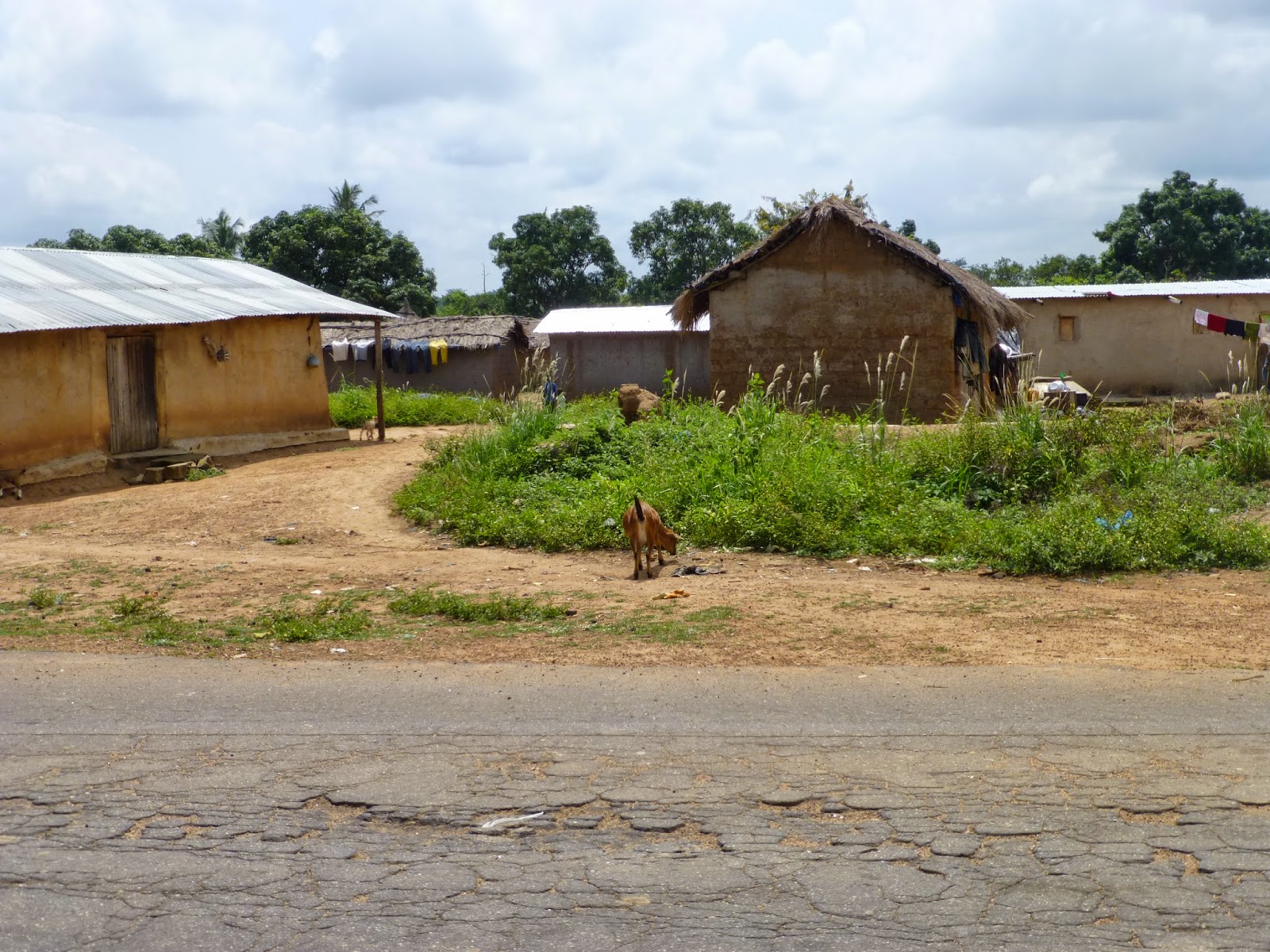 |
| Ripe cacao pods |
This week started with my first work security alert. On Tuesday there was a
nationwide demonstration for back-pay by members of the military who had deserted the Ivoirian army to join the eventually victorious rebellion in the
2002-2007 war. They told us of the planned demonstrations the day before, and sent us home about an hour early on the day. The main roundabout in the center of town had been blocked off, and there was more traffic than usual on the back streets, but that's all the evidence I saw. In the morning we got a radio call telling us it was ok to come back to work.
Everyone was pretty relieved. One of the main goals of the ONUCI mission here is DDR: Disarmament, Demobilization, and Reintegration of the militias. There's still a lot of work to be done. Many people don't really trust the government yet and have held on to their weapons. There's a lot of unemployment among youth, too, which doesn't help.
Wednesday I was at the camp restaurant having my usual lunch (salad and fried plantains - mmm) when a call came in for the head of Security, who was also eating there, about the holdup of an intercity minibus (called a "massa") 20 kilometers from Daloa on the main road to Abidjan. We were all kind of sobered, as it was broad daylight, and considering whether it had been related to the events of the day before.
 |
| It's coffee harvest too, but it returns less these days |
Someone then said, well it's the season.
Yes, it turns out there's a holdup season. I makes sense, too - there's the cacao harvest now, and all around the region you can see the fermented grains being spread out to dry in the sun by the side of the road. Everything is paid in cash - credit cards are totally useless and
mobile money isn't very widespread. So the cacao and coffee buyers go around with large sums on them and make good targets for the enterprising criminal. The cacao farmers are presumably also reasonable targets for the somewhat less ambitious/organized thugs.
The condition of the roads actively helps, because there are countless places to choose from where drivers have to come to an almost complete stop to get past the potholes. A forward-looking group of highwaymen just has to pick a suitable spot and wait for the right mark.
 |
| Unrelated picture of lizards sunbathing on my wall |
And yet, things are remarkably calm. A couple of days later I ended up having quite a pleasant roadside lunch in the very town where the holdup happened, and everything was just as normal. In fact that's the weirdest thing about it. For me the very term "holdup" conjures images of Depression-era bank heists. I'm guessing that in the US and Europe a lot of the roads were probably pretty bad then, and even though it's very hard for me to imagine, there must have been a "holdup season" there too. It may even have been worse, since so many crops are harvested at the same time, just before winter.
This morning at 6 am I met up with Augustine (who supplied me with the potted plants last week, you may remember) for a two hour walk around town before it gets too hot. We walked to the market and back and explored some new areas in the part of town known somewhat uninvitingly as Abattoir, which was in fact really nice. The roads aren't paved there, but they're wide and light and inviting, and there aren't many cars. There were little kids playing and old people chatting and people getting ready for their day.
I remember when I first moved to South Atlanta in the 90s I was almost surprised that the locals didn't seem worried about drive-by shootings. It wasn't anything like "Boyz N the Hood". I always feel like a bit of an idiot, remembering that reality doesn't in fact look much like the movies.
Let's face it, not just my grandparents, but the grandparents of every person I know made it through the Great Depression without getting riddled with bullets a la Bonnie and Clyde. Most of them probably never robbed a bank, either. And here I am, peacefully working through holdup season in Daloa. Who would have thought?
 |
| A little creek on the way back from Abattoir |















